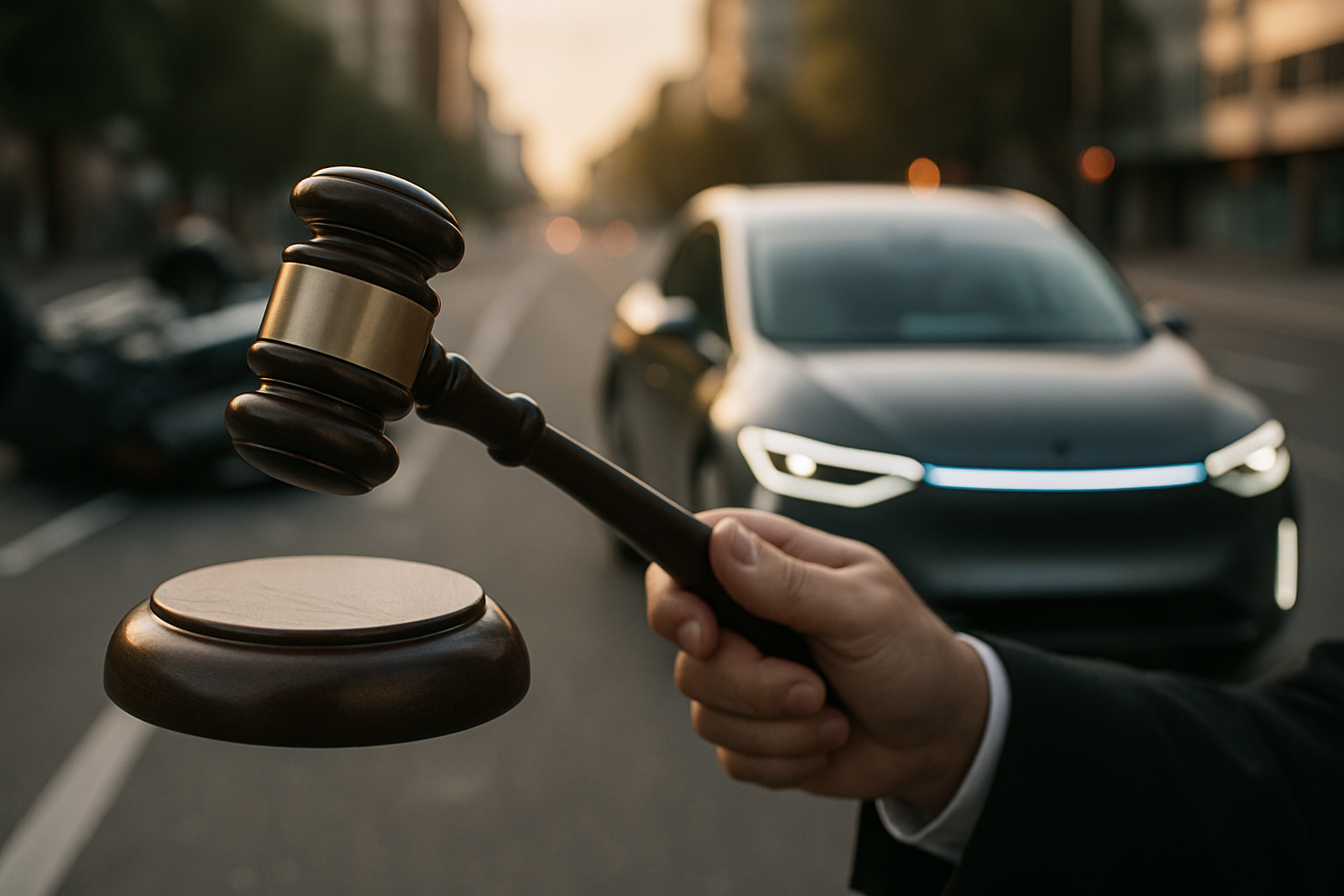Title: Legal Challenges in Regulating Autonomous Vehicles
Introduction: The advent of autonomous vehicles has sparked a legal revolution, challenging traditional automotive regulations and liability frameworks. As these self-driving marvels inch closer to widespread adoption, lawmakers and legal experts grapple with unprecedented questions of responsibility, safety, and ethics. This article delves into the complex legal landscape surrounding autonomous vehicles, exploring the challenges and potential solutions in crafting a regulatory framework for this groundbreaking technology.

Liability in the Age of Autonomy
One of the most pressing legal challenges is determining liability in accidents involving autonomous vehicles. Traditional auto insurance models assume human error as the primary cause of accidents, but with AI at the wheel, the lines of responsibility blur. Should liability fall on the vehicle manufacturer, the software developer, or the human occupant? Some legal experts propose a shift towards product liability law, treating autonomous vehicles more like consumer products than traditional cars. This approach could place greater responsibility on manufacturers but might also stifle innovation if liability risks become too high.
Data Privacy and Cybersecurity Concerns
Autonomous vehicles generate and process vast amounts of data, raising significant privacy and security concerns. Current data protection laws may be inadequate to address the unique challenges posed by self-driving cars, which can collect information about passengers’ locations, habits, and even conversations. Lawmakers must balance the need for data collection to improve vehicle performance and safety with individuals’ right to privacy. Additionally, the potential for cyberattacks on autonomous vehicles presents a new frontier in automotive safety, requiring robust legal frameworks to ensure manufacturers implement stringent cybersecurity measures.
Ethical Dilemmas and Algorithmic Decision-Making
The programming of autonomous vehicles raises complex ethical questions that have legal implications. How should a vehicle be programmed to react in unavoidable accident scenarios? Should it prioritize the safety of its occupants over pedestrians? These ethical dilemmas require careful consideration and potentially new legal frameworks to guide the development of decision-making algorithms. Some jurisdictions are exploring the idea of mandatory ethical guidelines for autonomous vehicle programming, but consensus on these issues remains elusive.
Adapting Traffic Laws and Infrastructure
Existing traffic laws and road infrastructure are designed with human drivers in mind, creating challenges for the integration of autonomous vehicles. Legal experts and policymakers must consider how to adapt traffic regulations to accommodate both human-driven and autonomous vehicles sharing the road. This may include revising rules on following distances, speed limits, and right-of-way to account for the different capabilities of autonomous systems. Additionally, the legal framework for updating and maintaining road infrastructure, including signage and traffic signals, may need to evolve to support the successful deployment of autonomous vehicles.
International Harmonization of Regulations
As autonomous vehicles become a global phenomenon, the need for international harmonization of regulations becomes increasingly apparent. Differences in traffic laws, liability frameworks, and safety standards across countries could impede the cross-border operation of autonomous vehicles and complicate their development for global markets. Legal experts are calling for international cooperation to establish common standards and protocols, similar to existing agreements in aviation. This harmonization effort faces significant challenges due to varying legal systems and cultural attitudes towards automotive regulation around the world.
The Road Ahead: Adaptive Regulation
The rapid pace of technological advancement in autonomous vehicles necessitates a flexible and adaptive legal approach. Traditional regulatory models may struggle to keep up with the speed of innovation in this field. Some legal experts propose a regulatory sandbox approach, allowing controlled testing of new technologies and regulatory frameworks in real-world conditions. This could provide valuable insights for developing effective long-term regulations while fostering innovation. As the technology continues to evolve, lawmakers and legal experts must remain vigilant, regularly reviewing and updating regulations to ensure they remain relevant and effective in addressing the unique challenges posed by autonomous vehicles.





